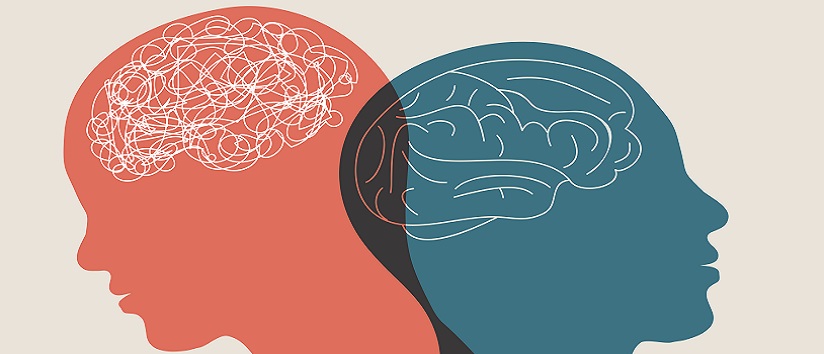Pavilion Publishing and Media Ltd
Blue Sky Offices Shoreham, 25 Cecil Pashley Way, Shoreham-by-Sea, West Sussex, BN43 5FF, UNITED KINGDOM
Spotlight: being aware of bipolar
Bipolar is a condition “hiding in plain sight”, but by being aware of its signs and symptoms, practitioners can help to encourage its early diagnosis and management.
Bipolar is a severe mental illness characterised by extreme mood swings and changes in energy levels. People with bipolar can have long or short periods of stability, but can then go ‘low’ – into deep depression, or ‘high’ – experiencing hypomania, mania, or psychosis.1
It’s estimated that between one per cent and five per cent of people worldwide have bipolar.1 In the UK, over one million people have bipolar – roughly 30% more than the number of people who have dementia, and twice the number of people who have schizophrenia.1
“Most people will know someone with bipolar, but probably won’t realise it,” says Simon Kitchen, chief executive of Bipolar UK, a charity supporting people affected by bipolar.
“Bipolar can be very damaging to people’s lives”, he says. “Some studies suggest one in five people with the condition will eventually take their own life. And for every person living with bipolar, around another five – family, friends, and colleagues – will be profoundly affected by it.”
Types, signs, and symptoms of bipolar
Guy Goodwin, emeritus professor of psychiatry at the University of Oxford, says it is important to distinguish between bipolar 1 – the severe form of bipolar, which used to be called manic depression – and the less severe bipolar 2.
- Further reading: Electroconvulsive therapy in bipolar affective disorder
He explains bipolar 1 is characterised by episodes of mood elevation, where people become overactive, unneedful of sleep, and disinhibited. A ‘manic’ episode will involve a massive elevation of mood, together with a lot of activity, potentially resulting in very bad judgements – such as excessive spending, or dangerous driving. People with bipolar 1 may also experience depressive episodes.
Depression is the main problem for people with bipolar 2, while their mood elevations are for relatively short periods, and they don’t reach the levels of mania experienced by people with bipolar 1, says Professor Goodwin.
To help explain the extremes of mood, Bipolar UK uses a Mood Scale where 0 is low and 10 is high. People without bipolar have moods that sit in the middle of the scale. On their worst days when they feel down, they rank 4. On their best days when they feel happy, they rank 6.1
People with bipolar experience a much wider range of moods — from 0 (deep depression with recurring suicidal thoughts) to 10 (an extreme manic high with psychosis and hallucinations). They can also experience a ‘mixed state’ too, where symptoms of depression and mania occur at the same time.1
Bipolar: causes and triggers
According to Bipolar UK, bipolar symptoms result from “a system imbalance that makes it difficult for the brain to regulate mood”. “As a result, someone’s mood can become unstable or stuck in extreme states of depression or mania,” the charity says.1
Studies on twins suggest that bipolar is mostly a genetic condition.1 If one twin has bipolar, their identical sibling has a 70% chance of developing the condition.1 There is no single gene responsible for bipolar, but a collection of over 100,000 genes that are also linked to schizophrenia, anxiety, and depression.1
Some families have high levels of heritability – where the condition is passed down through the generations – while some have very low levels, says Bipolar UK.1 The charity says researchers don’t yet know why there is such a big variation, although some believe it may be linked to exposure to adversity at a young age – sometimes due to a parent experiencing unmanaged bipolar symptoms themselves.1
Many people with bipolar blame themselves for their symptoms, says Mr Kitchen. And self-stigma, guilt and shame are common.1
People living with bipolar can experience the condition in different ways.1 At any one time, most people with bipolar are living within a balanced mood range known as ‘euthymia’.1
Factors that trigger bipolar episodes include a lack of sleep, as reported by 80% of people with the condition, says Mr Kitchen. Having a baby, losing a job, or starting a new job – anything that causes a loss of sleep can potentially trigger an episode.
Vicious cycle
“The more severe an episode the more likely people are to have another severe episode,” says Mr Kitchen. He explains individuals get into a “vicious cycle”. When they have an episode, this could include getting into debt, or hypersexual behaviour. Eventually they may be sectioned, and possibly traumatised by the experience. Once they come out of hospital, they may now have all the problems associated with the condition, along with additional problems, such as they may have lost their job, or their marriage may have broken down.
Many people get trapped in this vicious cycle and often end up being ‘revolving-door patients’ with frequent hospital admissions, says Bipolar UK.1
Diagnosing bipolar
Getting a diagnosis “can open the door to effective treatment, support and self-management so that someone with bipolar can live well and fulfil their potential”, says Bipolar UK.1
However, according to the charity, on average, there’s a 9.5-year delay between someone seeing a doctor about a symptom of bipolar and getting an accurate diagnosis.2
Currently, bipolar can only be diagnosed by a psychiatrist, after a full assessment to ask about current and previous symptoms, medical background, and family history of mental illness.3
It can be difficult to get a diagnosis for bipolar. Some of the symptoms are similar to other mental health disorders, like depression. Patients may only present when they are experiencing depression, rather than an elevated mood, and are therefore only treated for depression. And the amount of time it can take to make a diagnosis of bipolar means this often only happens once the person has reached a crisis point.
Recent study findings could lead to an earlier diagnosis for people with bipolar. Researchers from the Universities of Keele and Manchester have identified the early signs that can indicate the condition. Psychiatric diagnoses, psychotropic prescriptions, and health service use patterns are strong indicators of bipolar, the study found.4 The findings will enable doctors to carry out quicker referral, assessment, and treatment of the condition, researchers say.
And a new way of improving diagnosis of bipolar that uses a simple blood test to identify biomarkers associated with the condition, has been developed by researchers from the University of Cambridge.5
Professor Goodwin says that it is not only important for psychiatrists to take a careful history, and to appreciate the ways in which mood elevations are affecting the patient, but also to talk to family and friends to get their input about, say, how the patient has been sleeping, and other behaviours.
For GPs, when patients present with depression, Professor Goodwin says it is worth asking if they have periods when their mood is elevated – which has implications for treatment.
“We know that earlier diagnosis means earlier treatment and better outcomes,” says Professor Carolyn Chew-Graham, professor of general practice research at Keele University and a GP in Manchester.
She says GPs, nurses and pharmacists need to be aware of bipolar disorder and refer early. “If a patient has a depressive illness, but is not getting better on antidepressants, think: is this bipolar?” she advises.
“Always ask questions about family history as bipolar often runs in families,” she says. “When talking to patients with depressive symptoms, ask if they have episodes when they’ve not needed much sleep, for example. And ask about risk, as people in a depressive and manic phase are at increased risk of suicide,” she says.
“The better the referral letter to specialist care, the more likely the patient is to be seen,” she says.
“And always offer a proactive follow up,” she says. “If you refer a patient to specialist care because you think it could be bipolar, always suggest they come back for an appointment in a month to see how they are doing.”
Practitioners should also always make sure there is a safety net for patients with bipolar, such as providing them with the number of a crisis team, or to consider A&E or 111, she says.
Treating and managing bipolar
A range of medications are used in the treatment of bipolar as each person can respond differently to each or combinations of them.6 Medications commonly used are, for example, lithium for mood stabilisation or mood maintenance, antipsychotics for hypomania or mania, antidepressants for bipolar depression, and anxiety medications for associated problems.6
People with bipolar can track their mood to as part of good self-management. Bipolar UK has a Mood Tracker App or people can print the charity’s Mood Scale and Mood Diary.
Bipolar UK also runs self-management courses that can give people an understanding of the condition, and the triggers to avoid, says Mr Kitchen.
Supporting people with bipolar and their families
Practitioners can signpost people with bipolar, and their families or carers, to sources of information, advice, and support, such as Bipolar UK, and Mind, and details of any self-help services in their local area, says Professor Chew-Graham.
It is also important for practitioners to build relationships with their patients and to be proactive in follow-up support, she says.
People with bipolar die 10 to 15 years earlier than the general population due to being at increased risk of conditions like cardiovascular disease and diabetes, and are more likely to be overweight, to smoke, and to misuse alcohol, says Professor Chew-Graham. Practitioners need to support patients’ physical health, such as signposting them to smoking cessation or weight management programmes, or to support from drug and alcohol teams, she says.
With people living with undiagnosed bipolar at risk of losing their jobs, relationships, homes and lives, Bipolar UK is campaigning to get the 9.5-year average wait for a bipolar diagnosis down to five years within five years. The charity would also like to see an increase in the number of psychiatrists, particularly community psychiatrists, so people can be diagnosed more quickly in the community, says Mr Kitchen.
Bipolar is a condition “hiding in plain sight” he says. “Any doctor who is dealing with someone with depression should be thinking about whether bipolar is a factor.” For people with bipolar “it is possible to live a good life”, he says. “There are people who have struggled for years with the condition, who, with the right combination of medications, as well as self-management, are now leading much better lives. The prognosis can be really positive, if people get treatment early and get support for the condition.”
Resources
Bipolar UK: supporting people affected by bipolar. https://www.bipolaruk.org/
Mind: mental health charity. https://www.mind.org.uk/
Carers UK: Advice and support for anyone who provides care.0808 808 7777
029 2081 1370 (Carers Wales) [email protected] carersuk.org
References
- Bipolar UK (2023) Understanding bipolar. Available at: https://www.bipolaruk.org/understanding-bipolar
- Bipolar UK (2024) Diagnosing bipolar. Available at: https://www.bipolaruk.org/diagnosing-bipolar
- Bipolar UK (2023) Bipolar UK’s response to new blood test findings. Available at: https://www.bipolaruk.org/News/bipolar-uks-response-to-new-blood-test-findings
- Keele University (2023) Researchers identify early signs of bipolar disorder. Available at: https://www.keele.ac.uk/research/researchnews/2023/october/bipolar-disorder/researchers-identify-early-signs.php
- University of Cambridge (2024) Simple blood test can help diagnose bipolar disorder. Available at: https://www.cam.ac.uk/research/news/simple-blood-test-can-help-diagnose-bipolar-disorder
- Bipolar UK (2024) Medication and treatment. Available at: https://www.bipolaruk.org/Pages/FAQs/Category/medical-treatment



